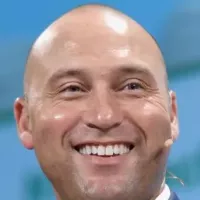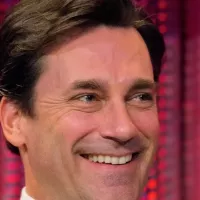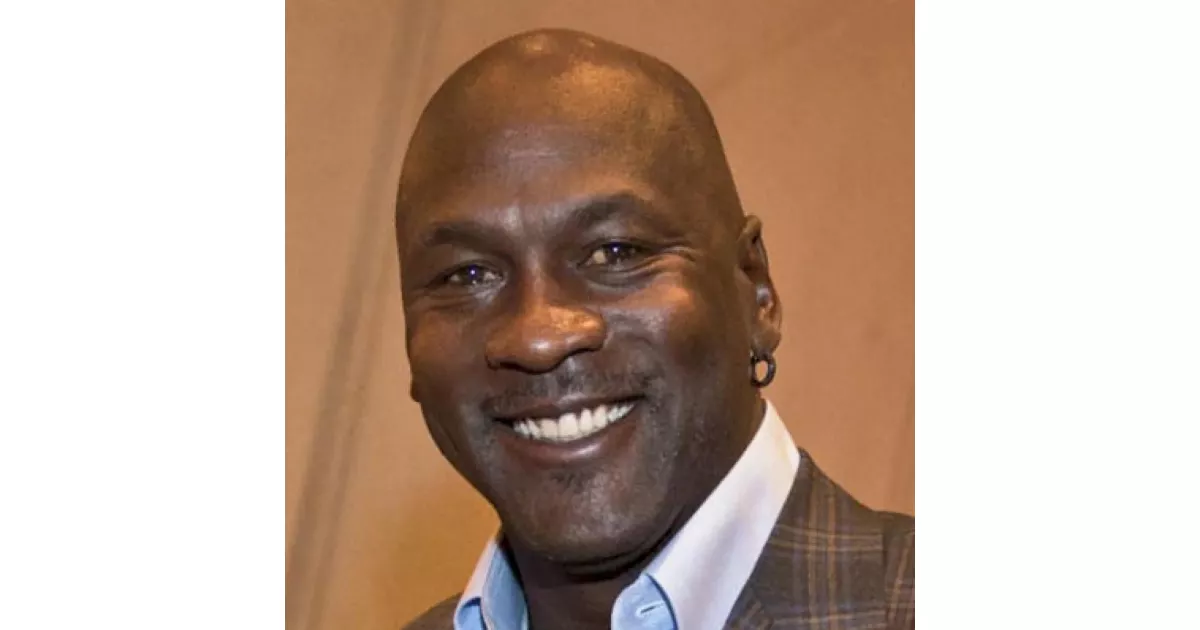A closer look at the biggest achievements of Michael Jordan. Awards, milestones, and records that define success.
Michael Jordan, widely considered one of basketball's greatest players, significantly boosted the NBA's global popularity in the 80s and 90s. During his 15 seasons (1984-2003), he secured six NBA championships with the Chicago Bulls. Beyond basketball, Jordan is a successful businessman and minority owner of the Charlotte Hornets. His estimated net worth is $3.8 billion as of 2025, making him one of the world's wealthiest celebrities.
1980: Improvement to Bulls
During his rookie 1984–85 season with the Bulls, Jordan helped the Bulls improve from 27–55 to 38–44 and qualify for the postseason for the first time since the 1980–81 season
1981: McDonald's All-American Game Selection
In 1981, as a senior, Michael Jordan was selected for the McDonald's All-American Game, where he scored 30 points.
1982: Game-Winning Shot in NCAA Championship
In 1982, Michael Jordan made the game-winning jump shot in the NCAA Championship game against Georgetown, a moment he described as a major turning point in his basketball career.
1982: National Championship with Tar Heels
In 1982, Michael Jordan, as a freshman, was a member of the North Carolina Tar Heels' national championship team.
1983: Jordan Debuts for U.S. National Team and Wins Gold
In 1983, Michael Jordan debuted as a college player for the U.S. national basketball team at the Pan American Games in Caracas, Venezuela, leading the team in scoring with 17.3 ppg and winning the gold medal.
1983: NCAA All-American First Team Selection
In 1983, Michael Jordan was selected by consensus to the NCAA All-American First Team during his sophomore season, recognizing his exceptional performance.
1983: Pan American Games Gold Medal
In 1983, Michael Jordan won a gold medal as part of the United States national team at the Pan American Games.
1984: Jordan Wins Olympic Gold Medal
In 1984, Michael Jordan won an Olympic gold medal, starting a successful international career.
1984: Jordan Wins Gold at the Summer Olympics
In 1984, Michael Jordan won another gold medal at the Summer Olympics, averaging 17.1 ppg and leading the U.S. team in scoring.
1986: Prolific Scoring Season
In the 1986-87 season, Michael Jordan had one of the most prolific scoring seasons in NBA history, becoming the only player other than Wilt Chamberlain to score 3,000 points in a season.
1987: First League MVP Award
In 1987–88 season, Michael Jordan won his first league MVP Award and was named the NBA Defensive Player of the Year.
1988: Jordan Wins Defensive Player of the Year and MVP
In 1988, Michael Jordan was honored with both the NBA Defensive Player of the Year and Most Valuable Player awards, achieving a feat previously unmatched in NBA history.
1990: Regular Season Success
In 1990, Michael Jordan won his second MVP award, averaging 31.5 points per game with a 53.9% shooting accuracy, 6.0 rebounds per game, and 5.5 assists per game. The Bulls secured the first position in their division for the first time in sixteen years and achieved a franchise record with 61 regular-season wins.
1991: Continued Dominance and Second MVP
In 1991, Jordan continued his dominance with the Bulls, achieving a 67-15 record and winning his second consecutive MVP award with averages of 30.1 points, 6.4 rebounds, and 6.1 assists per game, while shooting at 52%.
1991: First NBA Title with the Bulls
In 1991, Michael Jordan won his first NBA title with the Chicago Bulls, solidifying his status as a top player.
1992: NBA Title and Olympics Gold Medal
In 1992, Michael Jordan secured another NBA title with the Bulls and won a gold medal with the United States national team at the Summer Olympics. He also played for the United States national team during the 1992 Tournament of the Americas.
1992: First Game 7 Since 1992
In 1997, the Bulls won the Eastern Conference Championship for a third straight season, including surviving a seven-game series with the Indiana Pacers in the Eastern Conference Finals; it was the first time Jordan had played in a Game 7 since the 1992 Eastern Conference Semifinals with the New York Knicks.
1993: Third NBA Championship and Finals MVP
In 1993, Michael Jordan and the Bulls won their third NBA championship, with Jordan averaging a Finals-record 41.0 points per game and winning his third consecutive Finals MVP award. Despite a stellar regular season, Jordan lost the MVP award to Charles Barkley.
1993: Third Consecutive NBA Title and Retirement
In 1993, Michael Jordan won his third consecutive NBA title with the Bulls and then abruptly retired to play Minor League Baseball.
November 1, 1994: Bulls Retire No. 23
On November 1, 1994, the Chicago Bulls retired Michael Jordan's No. 23 in a ceremony, including the erection of "The Spirit" sculpture outside the new United Center.
March 1995: Return to the Bulls
In March 1995, Jordan decided to quit baseball and returned to the Bulls midway through the season.
March 18, 1995: Jordan Announces Comeback
On March 18, 1995, Michael Jordan announced his return to the NBA with a simple two-word press release: "I'm back."
March 28, 1995: 55 Points at Madison Square Garden
On March 28, 1995, Michael Jordan scored 55 points against the New York Knicks at Madison Square Garden, marking a significant moment in his comeback season after his hiatus from the NBA.
1995: Aggressive Training
In 1995, Jordan trained aggressively for the 1995-96 season after the playoff defeat.
September 1996: Jordan Named Greatest Athlete of the Past 50 Years by Sport
In the September 1996 issue of Sport, which was the publication's 50th-anniversary issue, Michael Jordan was named the greatest athlete of the past 50 years.
1996: David Thompson Inducted into the Hall of Fame
In 1996, David Thompson was inducted into the Naismith Memorial Basketball Hall of Fame, and would later present Michael Jordan during his own induction speech in 2009.
1996: Fourth NBA Championship with the Bulls
In 1996, Michael Jordan led the Bulls to another NBA championship and a record of 72 regular season wins.
1996: Jordan Named One of the 50 Greatest Players in NBA History
In 1996, Michael Jordan was named one of the 50 Greatest Players in NBA History, recognizing his significant contributions and achievements in basketball.
1996: 69-13 Record
In the 1996-97 season, the Bulls stood at a 69–11 record but ended the season by losing their final two games to finish the year 69–13, missing out on a second consecutive 70-win season.
1997: Fifth NBA Championship with the Bulls
In 1997, Michael Jordan and the Chicago Bulls won their fifth NBA championship.
1997: "The Flu Game" and Fifth Finals MVP
In 1997, despite being ill during Game 5 of the NBA Finals, Jordan scored 38 points, including the game-winning three-pointer. The Bulls won the series, and Jordan received his fifth Finals MVP award. He also posted the first triple-double in All-Star Game history.
June 14, 1998: Clutch Plays in Game 6
On June 14, 1998, during Game 6 of the NBA Finals, Michael Jordan executed a series of clutch plays in the final minute, including a shot over several Jazz defenders, cutting Utah's lead to 86-85. He then stole the ball from Malone.
1998: Jordan's Clutch Performance in the Finals
By 1998, during the season of his Finals-winning shot against the Jazz, Michael Jordan was well known throughout the league as a clutch performer, always asking for the ball in crucial moments.
1998: Sixth NBA Championship with the Bulls
In 1998, Michael Jordan led the Chicago Bulls to their sixth NBA championship.
1998: Sixth NBA Championship and Finals MVP
In 1998, Michael Jordan made the climactic shot of his Bulls career with 5.2 seconds left in Game 6 of the NBA Finals, leading the Bulls to their sixth NBA championship. Jordan was voted Finals MVP for a record sixth time, averaging 33.5 points per game in the series.
December 1999: Jordan Ranked Greatest North American Athlete of the 20th Century
In December 1999, Michael Jordan was ranked the greatest North American athlete of the 20th century by an ESPN survey of journalists, athletes, and other sports figures.
1999: Greatest North American Athlete of the 20th Century
In 1999, Michael Jordan was named the 20th century's greatest North American athlete by ESPN, highlighting his lasting impact on sports.
2002: Selection to ACC 50th Anniversary Team
In 2002, Michael Jordan was selected to the ACC 50th Anniversary men's basketball team and named the greatest athlete in ACC history.
February 21, 2003: Jordan Scores 43 Points at 40 Years Old
On February 21, 2003, Michael Jordan became the first 40-year-old to score 43 points in an NBA game during his stint with the Washington Wizards.
2008: Chief Wish Ambassador
In 2008, the Make-A-Wish Foundation named Michael Jordan its Chief Wish Ambassador.
August 2009: Naismith Memorial Basketball Hall of Fame opens Michael Jordan exhibit
In August 2009, the Naismith Memorial Basketball Hall of Fame opened an exhibit dedicated to Michael Jordan, celebrating his illustrious career.
September 2009: Jordan's Hall of Fame Induction
In September 2009, Michael Jordan was inducted into the Naismith Memorial Basketball Hall of Fame. He chose David Thompson to present him and delivered an emotional induction speech that later spawned the "Crying Jordan" meme.
2009: Induction into Naismith Memorial Basketball Hall of Fame
In 2009, Michael Jordan was inducted into the Naismith Memorial Basketball Hall of Fame for his individual career achievements.
June 2010: Ranked among world's most powerful celebrities
In June 2010, Forbes ranked Michael Jordan as the 20th most powerful celebrity in the world, noting he earned $55 million between June 2009 and June 2010.
2010: Hall of Fame Induction as Part of the 'Dream Team'
In 2010, Michael Jordan was inducted into the Naismith Memorial Basketball Hall of Fame as a member of the 1992 United States men's Olympic basketball team, known as "The Dream Team".
June 2014: Became a billionaire
In June 2014, Michael Jordan became the first NBA player to achieve billionaire status after increasing his stake in the Charlotte Hornets.
2016: Presidential Medal of Freedom
In 2016, Michael Jordan was awarded the Presidential Medal of Freedom by President Barack Obama, recognizing his contributions.
2016: Jordan honored with the Presidential Medal of Freedom
In 2016, Michael Jordan was honored by President Barack Obama with the Presidential Medal of Freedom, recognizing his contributions to sports and American culture.
2017: Highest Career Earnings
In 2017, Forbes designated Michael Jordan as the athlete with the highest career earnings.
October 2021: Jordan named to the NBA 75th Anniversary Team
In October 2021, Michael Jordan was named to the NBA 75th Anniversary Team, recognizing him as one of the greatest players in NBA history.
2021: Jordan Selected to NBA 75th Anniversary Team
In 2021, Michael Jordan was selected to the NBA 75th Anniversary Team, solidifying his status as one of the greatest players in the history of the sport.
December 2022: NBA unveils MVP trophy named in Jordan's honor
In December 2022, the NBA unveiled a new regular season MVP trophy named in honor of Michael Jordan. This trophy replaced the one named after Maurice Podoloff and will be awarded starting with the 2022-23 season.
2023: 23XI Racing Fields Third Car, Reddick wins regular season championship
In 2023, 23XI Racing fielded a third car, No. 67, driven by Travis Pastrana in the Daytona 500. Also in 2023, Tyler Reddick won the 2024 NASCAR Cup Series regular season championship, the first for the team.
Mentioned in this timeline

Basketball is a team sport played on a rectangular court...

Barack Obama the th U S President - was the...
McDonald's is an American multinational fast food restaurant chain As...

Michael Joseph Jackson the King of Pop was a highly...
IMAX is a proprietary system utilizing high-resolution cameras film formats...

Derek Jeter nicknamed the Captain is a retired American professional...
Trending

55 minutes ago Jon Hamm Discovers Viral Dancing Meme; Reacts to Meme-Worthy Status at 54.

55 minutes ago Georgia: Missing child found safe after Amber Alert issued in Barrow County.

2 hours ago Selena Gomez Defends Benny Blanco Amid Dirty Feet Frenzy and Divorce Comments.

2 hours ago Blackpink Announces New Album 'DEADLINE' and Teases New Era.

2 hours ago Christian Bale transforms for 'The Bride,' calls character 'old-fashioned,' praises Gyllenhaal's script.
2 hours ago Jaden McDaniels' rise with Timberwolves foreseen by Crawford; joins Leonard's exclusive group.
Popular

Jesse Jackson is an American civil rights activist politician and...

Susan Rice is an American diplomat and public official prominent...

Barack Obama the th U S President - was the...

XXXTentacion born Jahseh Dwayne Ricardo Onfroy was a controversial yet...

Michael Joseph Jackson the King of Pop was a highly...

Kashyap Pramod Patel is an American lawyer who became the...
